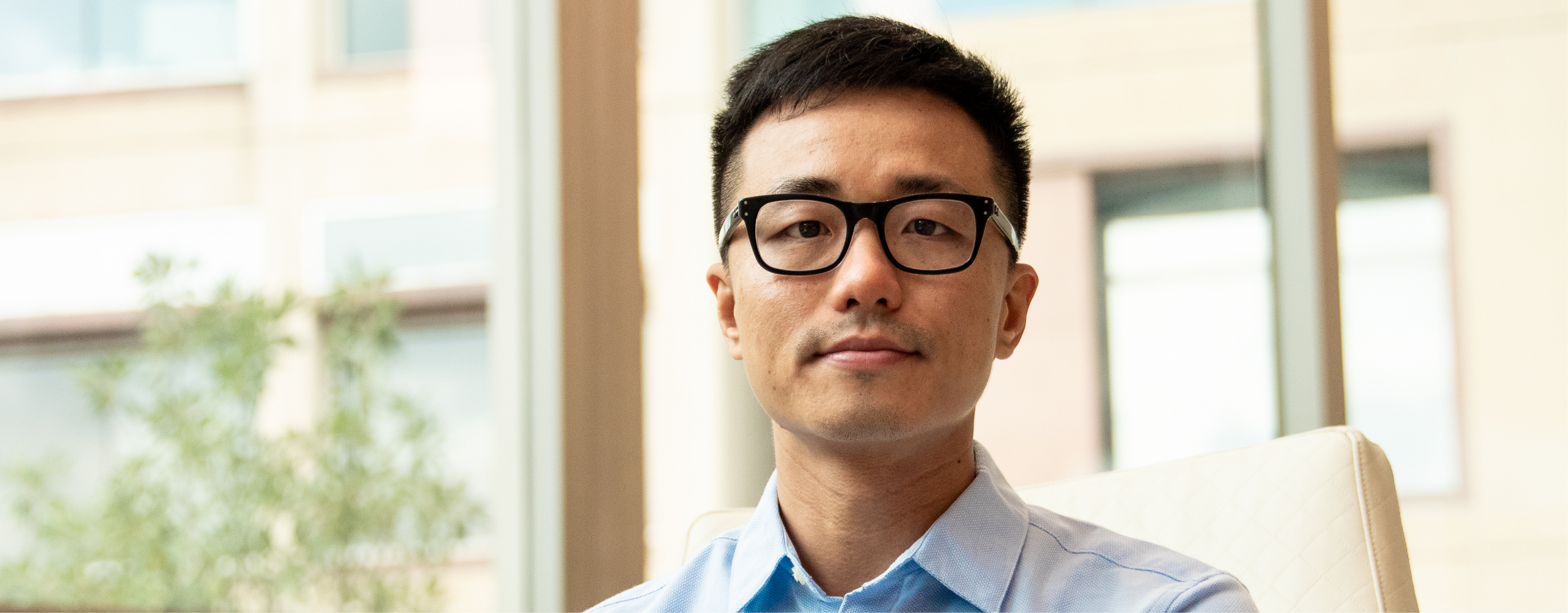
Assistant Professor, Gangarosa Department of Environmental Health
“I really love the Rollins students. They come from different backgrounds, and they have different skillsets, but they have one thing in common: they're incredibly passionate about public health. I really enjoy the experience of helping and contributing to mentoring the future generation of public health here at Rollins.”
Donghai Liang, PhD, first became interested in the effects of air pollution on health when he was a college student in Beijing, China, and experienced them firsthand. Although he was studying biology, exposure to environmental health research and its potential impacts eventually led him to pursuing an MPH and later PhD in the field. These days, his research focuses on the human exposome, particularly ambient air pollution and persistent organic pollutants like PFAs.
“The exposome encompasses the totality of the environmental exposure a person has throughout their life course,” says Liang. “I’m trying to understand what really happens in the body when people are exposed to different environmental chemicals and how those exposures can lead to adverse outcomes and diseases.”
Centering his exposome research in health disparities and environmental justice is a particular passion for Liang. Most of his current work with the Environmental Metabolomics and Exposomics Research Group at Emory, which he heads, focuses on investigating the molecular mechanisms and disease etiology associated with environmental exposures in historically underserved populations. For instance, he and his team are working to understand the ways in which exposure to air pollution and persistent organic pollutants leads to adverse pregnancy and birth outcomes and environmental health disparities in the Atlanta African American Maternal-Child Cohort.
While Liang was initially drawn to study and then work at Rollins because of the HERCULES Exposome Research Center, one of the first of its kind in the country, he also has a deep appreciation for something else that makes the school unique—its welcoming and collaborative environment.
“As a student before and as a faculty member now, I think there's no better public health institution than Rollins in terms of its intimate and collaborative environment,” says Liang. “People really care about you. Your collaborators are also your friends, and everyone works together in such an organic and sustainable way.”
Liang embodies that spirit of collaboration through partnering with organizations throughout Atlanta and schools across the university in his research, and through supporting Rollins students however he can. In addition to teaching and guest lecturing, he has served as a research mentor and faculty advisor for more than 30 students in his six years as a faculty member.
“I really love the Rollins students,” says Liang. “They come from different backgrounds, and they have different skillsets, but they have one thing in common: they're incredibly passionate about public health. I really enjoy the experience of helping and contributing to mentoring the future generation of public health here at Rollins.”

